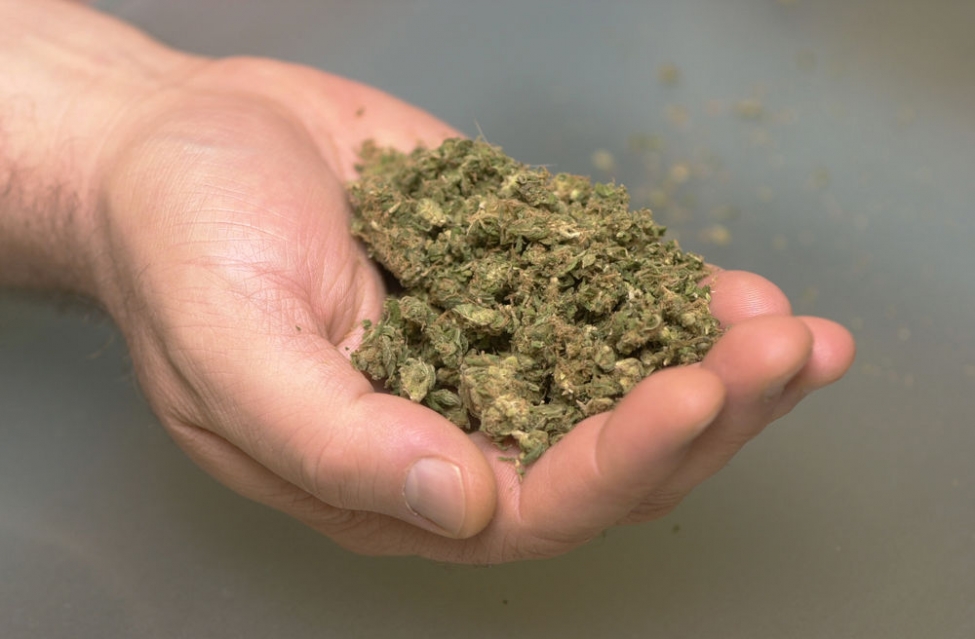A Champaign lawyer who pleaded guilty to having cannabis plants in his home will have to pay a street-value fine of $9,060.
Judge Randy Rosenbaum determined the fine that Andrew Allen, 55, must pay after his attorney, Jim Dedman, and Assistant State’s Attorney Kristin Alferink could not agree on an amount.
Allen pleaded guilty Sept. 11 to possession of fewer than 50 cannabis plants, admitting he was growing them in his home on Bridgestone Drive on Aug. 20, 2019.
He was sentenced to two years of first-offender probation, meaning he’ll have no record of a conviction if he successfully completes the period of probation.
Members of the Champaign County Street Crimes Task Force took 122 plants in various stages of growth from his garage and a bedroom closet.
Task force member Lance Carpenter testified that the grow operation in Allens’ garage was “very sophisticated,” involving special lighting and temperature control. Police found 46 plants there. The other 76 in a bedroom closet were described as starter plants.
The issue for Rosenbaum to decide was how much cannabis from those plants could have been sold on the day they were seized and what it was worth.
Allen, a lawyer for 29 years, testified that he began growing cannabis in 2007 to help a friend suffering from advanced AIDS who used it to alleviate pain.
“I got tired of buying bad pot from bad people,” he said.
After his friend died in 2008, Allen said he continued to grow it because “frankly, I was getting good at it. My ultimate intention was to develop a strain and be a distributor.”
He denied, as a confidential informant told police, that he was selling the cannabis he grew in increments of a pound.
Allen explained a lot of the growing process as he testified but estimated that of all the plants he had, there were “probably eight plants that were close to harvest within a week.”
Contrary to Carpenter’s earlier testimony that a healthy, fully mature plant could produce anywhere from a half-pound to a pound of cannabis for sale, Allen said “I’ve never had a plant produce more than 2 ounces.”
Under questioning by Dedman, Allen said he did not have an opinion as to what his plants were worth but told Alferink his grade was “above average.”
Dedman argued that most of the plants had no buds, and therefore, no cannabis that could be sold.
“I would analogize this to an uncooked pancake, which has no value,” he said at one point.
Alferink sought a fine of $73,200. She based that on Carpenter’s estimate that a plant could yield a half-pound to 1 pound of cannabis.
Using a low estimate that a pound of medium-grade cannabis can sell on the street for $1,200, she multiplied that by 61 pounds (half the potential yield of 122 plants).
Dedman didn’t suggest a fine amount but urged the judge to consider Allen’s testimony that the majority of the plants in the grow room were only about 1.5 inches tall.
“It’s like saying a calf embryo would bring what a steer would,” Dedman said, adding that Carpenter admitted that as a drug officer, he had never bought a cannabis plant and was only familiar with the finished product.
In his written ruling, Rosenbaum rejected Allen’s claim that he was not selling the cannabis, noting that after his friend for whom he was growing it died, Allen continued to grow it for 10 years.
“He says that his goal was to become a legal cannabis distributor, but that law is recent,” Rosenbaum wrote.
The judge accepted Allen’s testimony that only eight plants were close to harvest, given that there was nothing else in the record to show the condition of the seized plants.
He accepted Carpenter’s estimate of the street price of above-average-quality cannabis to be $10 a gram and estimated that the eight plants would produce 4 ounces each for a total of 32 ounces, or 906 grams, to come up with the fine amount of $9,060.


